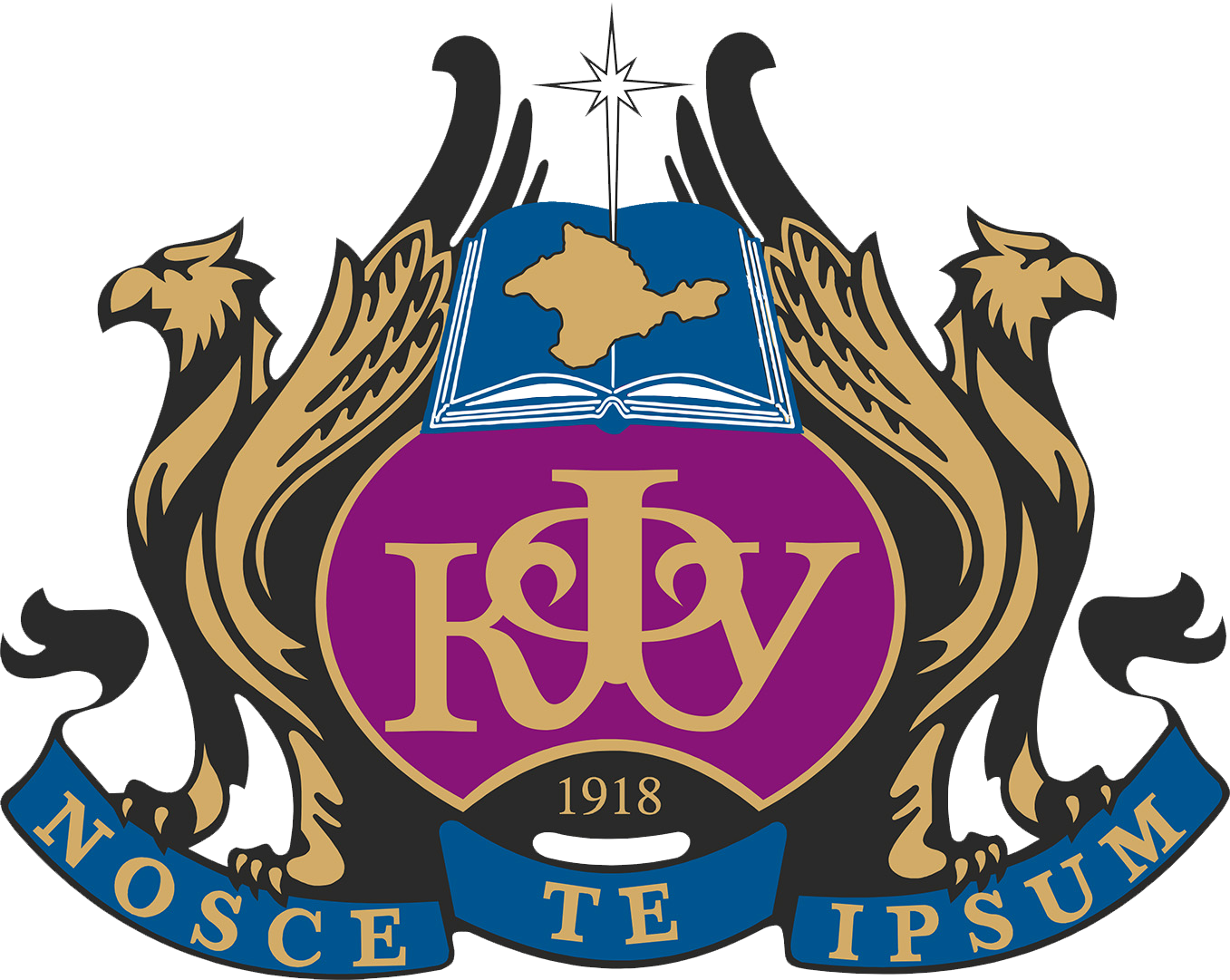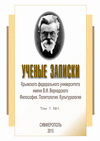The article investigates specific characteristics of the post-truth discourse, which in inherent modern social communication. Post-truth is considered as a cognitive distortion rooted in the structure of bourgeois social identity, characterizing the emotivist personality type and the socio-manipulative type of relations. The position is substantiated according to which the role of the ontological basis of the post-truth discourse is performed by a new type of information objects — «factoids». The specifics of their functioning in the information and communication space are described in categories of not binary, but three-valued logic, which assumes, in addition to truth and lies, a third mode — the unknown, uncertainty. The underdetermined epistemological status of the «factoid» does not indicate any of its inferiority compared to the fact, but is a specific property indicating the probabilistic nature of its ontology. It is argued that the post-truth interpretation of the ontological status of meaning as morally, ethically and epistemologically neutral legitimizes its use as a tool of post-truth politics. It is concluded that post-truth discourse is performative in nature. In this regard, it can be considered not only as a descriptive — specifically speculative-market way of representing reality, but also as: 1) a performative technology for the formation of augmented reality that produces «factoids», 2) a tool for the humanitarian-technological construction of social identity
post-truth, discourse, identity, emotivism, factoid.
1. Morozov A.V. Kak «postistinnyy mir» nakonec stal giperveriem: recenziya na knigu Stiva Fullera // Filosofiya. Zhurnal Vysshey shkoly ekonomiki. 2021. T. 5, № 3. S. 287–297.
2. Keyes R. The Post-Truth Era. Dishonesty and Deception in Contemporary Life. New York: St. Martin’s Publishing, 2004.
3. Fuller S. Postpravda: Znanie kak bor'ba za vlast' / per. s angl. D. Kralechkina; pod nauch. red. A. Smirnova. M.: ID VShE, 2021. 368 s.
4. Frankfurt G.G. K voprosu o brehne / Per. s ang. M. Oslona, pod red. G. Pavlovskogo, I. Chechel'. M.: Evropa, 2008. 120 s.
5. Hardoš P. Lee McIntyre: Post-Truth Cambridge, MA: MIT Press 2018, 240 pages (Book review) // Organon F, 2019, vol. 26, no. 2. pp. 311–316. DOI: https://doi.org/10.31577/orgf.2019.26210
6. Nikols T. Smert' ekspertizy. Kak internet ubivaet nauchnye znaniya. – M.: EKSMO, 2019. 244 s.
7. Makintayr A. Posle dobrodeteli: Issledovaniya teorii morali / Per. angl. V.V. Celischeva. M: Akademicheskiy proekt, 2000. 384 s.
8. Kol'ba A.I. Postpravda // Identichnost': lichnost', obschestvo, politika. Novye kontury issledovatel'skogo polya / Otv. red. I.S. Semenenko / IMEMO RAN. – Moskva: Ves' Mir, 2023. S. 413–418.
9. Tihonova S. V. Konkurenciya nauki i lzhenauki v epohu postpravdy // Izvestiya Saratovskogo universiteta. Ser. Filosofiya. Psihologiya. Pedagogika. 2018. T. 18, vyp. 3. S. 287–291.
10. Semenenko I.S. Vvedenie. Identichnost' v meynstrime politicheskoy nauki i v fokuse publichnoy politiki // Identichnost': lichnost', obschestvo, politika. Novye kontury issledovatel'skogo polya
11. Malinova O.Yu. Konstruirovanie smyslov: Issledovanie simvolicheskoy politiki v sovremennoy Rossii: Monografiya / RAN. INION. M., 2013. 421 s.
12. Balayan A.A., Tomin L.V. Aktorno-setevaya teoriya v kontekste diskussiy ob ideologii i politicheskoy ontologii // Vestnik Baltiyskogo federal'nogo universiteta im. I. Kanta.
13. Davies W. The Age of Post-Truth Politics / W. Davies // The New York Times. URL: https://www.nytimes. com/2016/08/24/opinion/campaign-stops/the-age-of-post truth-politics.html (Data obrascheniya: 02.03.2025)
14. Zholud' R.V. «Era postpravdy» v zapadnoy zhurnalistike: prichiny i posled-stviya // Vestnik Voronezhskogo gosudarstvennogo universiteta. Seriya: Filologiya. Zhurnalistika. 2018. №3. S.117–123.
15. DeMichele T. A Factoid is a Brief Piece Information that Appears True (2015) // FactMyth.com. – URL: https://factmyth.com/factoids/a-factoid-is-a-brief-piece-information-that-appears-true/
16. Shatin Yu.V. Postpravda kak ritoricheskiy fenomen v sovremennom mediaprostranstve // Vestnik NGU. Seriya: Istoriya, filologiya. 2020. T. 19, №6: Zhurnalistika. S. 250–257.
17. Markova L.A. Aktual'nost' ponyatiya «smysl» // Epistemologiya segodnya. Idei, problemy, diskussii: monografiya / Pod red. chl.-korr. RAN I.T. Kasavina i N.N. Voroninoy. N. Novgorod:
18. Dudina V.I. Vymyshlennyy krizis sociologii i kontury novoy epistemolo-gii // Sociologicheskie issledovaniya. 2013. №10. S. 13–21.
19. Lo D. Posle metoda: besporyadok i social'naya nauka / Per. s angl. i nauch. red. S. Gavrilenko. M.: Izd-vo Instituta Gaydara, 2015. 352 s.
20. Gutoskey E. What’s the Di袈erence Between a Fact and a Factoid? (2020). URL: https://www.mental





